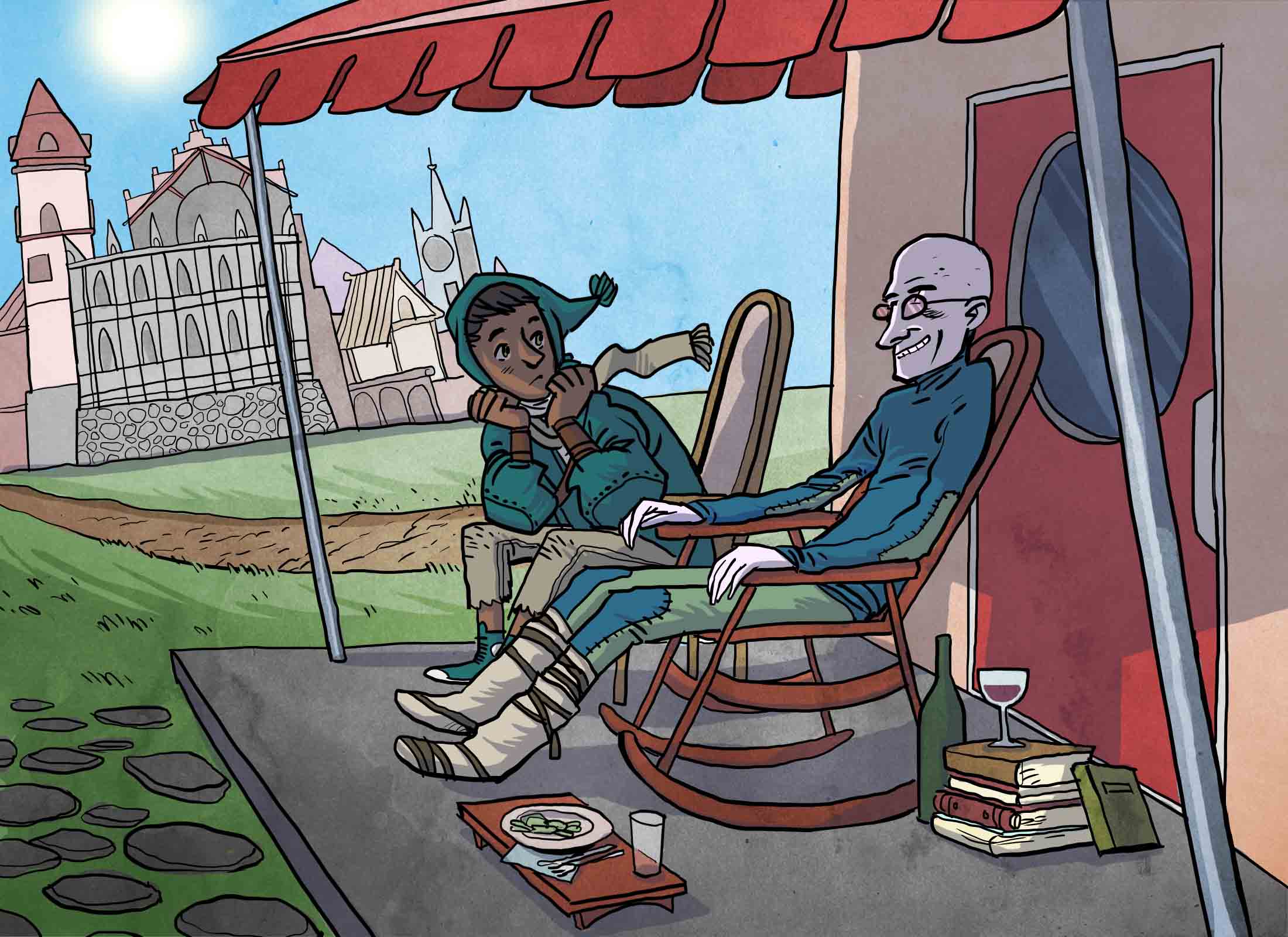

You continue to walk north for a ways until you come to a very modern looking building. A man is sitting on a rocking chair out front and weakly waves to you. “Are you Michel Foucault?” you call out.
“Oui,” he replies motioning you over.
“I was hoping that you might have time to chat, but you look under the weather,” you say.
“Yes, I have been afflicted with the dreaded AIDS, but c’est la vie as they say,” Foucault responds in a heavy French accent.
“Well, thank you for speaking to me. It is rumored that you are a follower of Kant. Is that so?” you ask dubiously. “I see that you live on the outskirts of Kant’s village, but some scholars say that you really don’t belong here. They say that you are not within the Kantian tradition at all, but in fact are contrary to Kant.”
“Naysayers!” Foucault retorts nearly upsetting his rocking chair. “Who cares what they say. I am a self-proclaimed follower of Kant, and yes, I claim to be in the Kantian tradition. Well, I would say that I am in the critical tradition of Kant. My theories are actually quite different. Some say I’m a post-modernist or a structuralist, but I’m not fond of labels. ‘I don’t feel that it is necessary to know exactly what I am. The main interest in life and work is to become someone else that you were not in the beginning.’[4]”
“Ok,” you say hesitantly. “So how are you in the Kantian tradition?”
“Most of my work is critical of Enlightenment theories and this notion that one’s freedom is limited by absolute moral imperatives. Kant is so concerned with formal structures and rational absolutes, he closes off the space humans need to question limits. I’m more interested in the power transgressing limits placed before us by rationality. I want to transcend the confines Kant created. ‘The Enlightenment, which discovered the liberties, also invented the disciplines.’[5] Although some of my critics say I’m trying to destroy theories of Enlightenment, that is simply not true. Instead, I’m transforming them. By critiquing Kant, I’m reinterpreting Kant for modern times. Kant exhorts us to free ourselves through our own reason and autonomy. My project looks at our present reality and then takes another step towards the ideals of freedom and autonomy as we ask ourselves who we are and the nature of our existence.”
“I see. It seems that there are many interpretations and applications of Kant’s philosophical teachings.”
“Oui, that is true. All of these houses dotting the hillsides have some type of affiliation with Kant. Weber whom you just visited is also interested in the notions of rationality and freedom. Neo-Kantians are those who engage in the Kantian debate and use much of the same terminology. Kant’s followers are numerous and varied in their outlook.”
“That is a lot to handle at one time,” you reply gazing in awe at the houses and buildings emanating from Kant’s village.
“Yes, it can be esoteric. But your visits with Weber and me were just a small exposure of the various ways you can interpret and employ the original works of Kant.”
“Well, that is a relief. I don’t think I could master all the works of Neo-Kantians in time to assist my friends.”
“It would be quite a feat to master this in a lifetime,” Foucault assures you. “For now, just concern yourself with the basics of Kant’s teaching. Let’s embark on the quiz and see how you do.
[4]Michel Foucault, interview, 1982.
[5]Michel Foucault, Discipline and Punish, 1975.